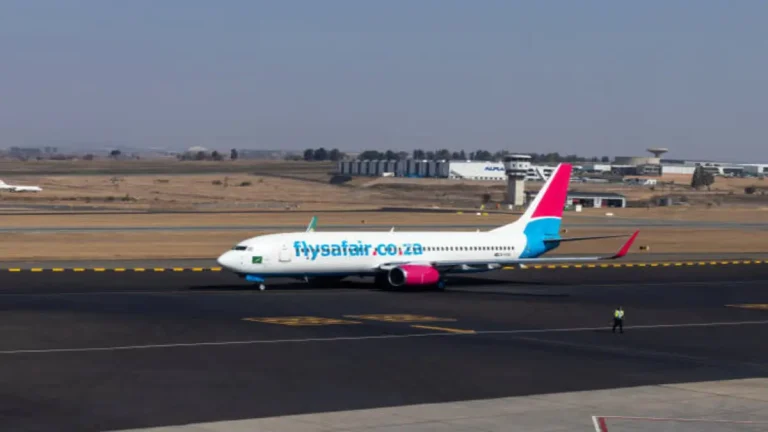South Africans planning to book flights for the December festive season are being urged to remain vigilant against a surge in flight-related scams.
Thank you for reading this post, don't forget to subscribe!This alert comes from Discovery Bank, which has warned its clients via its banking app that scammers are becoming more active as the holiday rush approaches.
How the Scam Works
Fraudsters are increasingly using fake airline advertisements on social media to lure victims. These ads often include attractive offers that seem legitimate at first glance.
Once potential victims engage, they are redirected to fake travel agents on WhatsApp. The criminals then instruct them to download what appears to be an official airline app. In reality, this software gives scammers remote access to the victim’s device.
After gaining access, the criminals ask the victim to log in to their banking app. Once this happens, the phone screen goes blank, allowing the scammers to conduct unauthorised transactions in the background.
How to Protect Yourself
Discovery Bank is advising South Africans to:
Book flights only through official airline websites or trusted travel agencies.
Avoid responding to suspicious or “too good to be true” ads on social media.
Never allow remote access to your phone or disable your security settings.
Avoid accessing your banking app while screen sharing.
Never share banking information, including PINs or OTPs.
Verify the identity of anyone claiming to represent a travel or banking company.
Be cautious of high-pressure tactics that push you to act quickly.
Flight Fraud on the Rise
The warning comes amid a sharp spike in flight fraud across the country. According to the National Financial Ombud Scheme (NFO), reported cases increased by 73% between January and May 2025 compared to the same period in 2024.
This is also the first time digital fraud complaints have surpassed ATM fraud, with over 3,000 additional cases reported during the same period.
Major banks including Absa, Capitec, Discovery Bank, Nedbank, and Standard Bank have raised alarms over the growing number of banking-app scams.
Digital Fraud Becoming More Sophisticated
The surge in mobile banking use has opened new doors for cybercriminals.
“We’re seeing a significant increase in scams involving fake investments and false goods advertised on social media,” said Ulrich Janse van Rensburg, Absa’s Chief Fraud Strategy and Analytics Officer.
Capitec has also reported more coercion tactics, where victims are pressured into authorising transactions under false pretences.
According to the South African Banking Risk Information Centre (SABRIC), digital fraud cost South Africans R2.72 billion in 2024, with R1.89 billion linked to digital banking. Banking app fraud accounted for 65% of these cases, as incidents rose by 86% year-on-year.
Regulators Step In
Regulators are ramping up efforts to curb digital banking crime. Unathi Kamlana, Commissioner of the Financial Sector Conduct Authority (FSCA), said tackling fraud requires a coordinated response between banks, telecom providers, law enforcement, and regulators.
“Criminals operate as organised networks, sharing data, tools, and tactics. Many are now using artificial intelligence to bypass traditional security measures,” Kamlana explained.
To combat this, the FSCA has launched its Digital Banking Fraud Project, focusing on real-time fraud monitoring, consumer education, and disrupting criminal financial flows.
Stay Alert This Holiday Season
As thousands of South Africans prepare to travel for the festive break, experts warn that cybercriminals will exploit the high booking period to target unsuspecting consumers.
Booking directly through official platforms, enabling security features, and staying sceptical of unsolicited deals can go a long way in keeping your money and your holiday safe.
Related article: ACSA Warns of Flight Delays at OR Tambo International Airport




